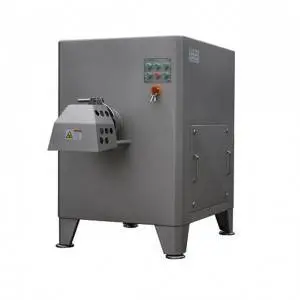
дец . 04, 2024 18:59 Back to list
catering equipment
The Essential Guide to Catering Equipment Enhancing Efficiency and Quality
In the dynamic world of food service, whether it’s a large-scale banquet, a food truck, or an intimate catering event, the right catering equipment is crucial for success. As culinary trends evolve and consumer expectations rise, catering professionals must equip themselves with tools that can enhance efficiency, improve food quality, and ensure a seamless service. This article explores the essential types of catering equipment, their importance, and tips for making the best choices.
Understanding Catering Equipment
Catering equipment encompasses a wide array of tools and appliances that assist in cooking, holding, transporting, and serving food. The equipment can be broadly categorized into several groups cooking appliances, refrigeration units, serving equipment, and storage solutions.
1. Cooking Appliances Key to any catering setup, cooking appliances include ovens, stoves, grills, and fryers. High-quality, commercial-grade equipment is vital, as it ensures consistent cooking results and withstands the demands of a busy kitchen. For example, convection ovens are popular in catering due to their ability to cook food evenly and quickly, thus saving time during service.
2. Refrigeration Units Keeping food safe and fresh is paramount in catering. Refrigerators, freezers, and chillers maintain optimal temperatures for perishable items. When selecting refrigeration units, look for appliances that offer energy efficiency as well as sufficient space to store large quantities of ingredients and products safely.
3. Serving Equipment This category includes items like chafing dishes, buffet servers, and warming trays. High-quality serving equipment not only keeps food warm but also enhances presentation, tempting guests to enjoy the meal. Consider investing in elegant serving platters and utensils that align with the event's theme, as aesthetics play a significant role in catering.
4. Storage Solutions Proper storage is crucial for organizational efficiency in catering. Various containers, racks, and shelving units can help in keeping ingredients and equipment orderly and accessible. Durable, stackable containers can save space and make it easier to prep and transport food items.
Importance of High-Quality Equipment
Investing in high-quality catering equipment cannot be overstated. The right tools will improve food production efficiency and ensure the safety and quality of the food served. Durable equipment lasts longer, reducing the need for frequent replacements and repairs, thereby saving money in the long run. Furthermore, reliable equipment minimizes the risk of malfunctions during events, which can lead to significant disruptions and dissatisfaction among clients.
catering equipment

Moreover, using appropriate catering equipment allows for professional presentation. Clients are increasingly seeking that 'wow factor' at events, and beautifully arranged food served in stylish dishes can elevate the dining experience.
Making the Right Choices
When choosing catering equipment, several factors should guide your decisions
1. Assess Your Needs Understand the type of events you will be catering. Are you primarily focused on weddings, corporate events, or casual gatherings? The scale and type of events will influence the kinds of equipment required.
2. Budget Considerations Equipment prices can vary widely, so it's essential to set a clear budget. While it might be tempting to choose the cheapest option, investing in quality equipment can save money in the long term due to better durability and efficiency.
3. Space Planning Before purchasing, measure the space you will be working with. Ensure that the equipment can fit comfortably in your kitchen or storage area without being overcrowded.
4. Read Reviews and Ratings With numerous brands and options available, it's wise to do thorough research. Read customer reviews and consider ratings to gauge the reliability and performance of the equipment.
5. Supplier Relations Establishing a good relationship with suppliers can be beneficial. They often provide insights into new equipment or offers that can help you make informed decisions.
Conclusion
Catering equipment is an investment that can have a significant impact on the success of your catering business. By choosing the right tools and appliances, catering professionals can operate more efficiently and provide top-quality service that meets and exceeds client expectations. In this ever-evolving industry, staying informed about the latest technological advancements in catering equipment will help businesses maintain a competitive edge and deliver memorable culinary experiences.
Latest news
-
Pneumatic Clipping Machine - Shijiazhuang Bossin Machinery Equipment Co., Ltd.
NewsAug.07,2025
-
Pneumatic Clipping Machine - Shijiazhuang Bossin Machinery Equipment Co., Ltd.|sausage production line,pneumatic technology
NewsAug.07,2025
-
Air-Free Vacuum Mixers for Precise & Homogeneous Blending
NewsAug.07,2025
-
Pneumatic Clipping Machine - Shijiazhuang Bossin Machinery | Sausage Production Line, Precision Clipping
NewsAug.06,2025
-
Pneumatic Clipping Machine-Shijiazhuang Bossin Machinery Equipment Co., Ltd.|Sausage Production Line Integration&Compact Design
NewsAug.06,2025
-
Automatic Deboner Machine for High-Yield Processing
NewsAug.06,2025